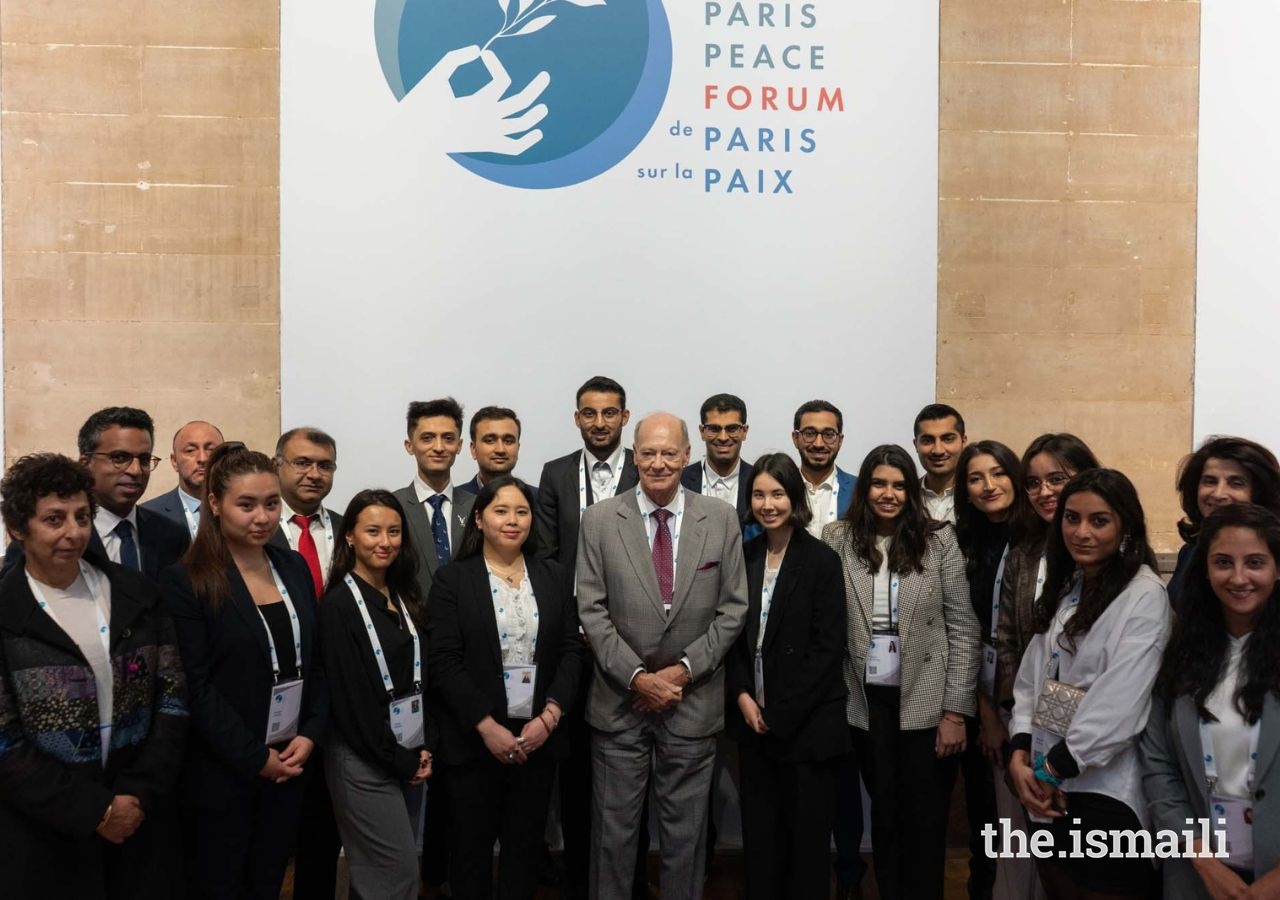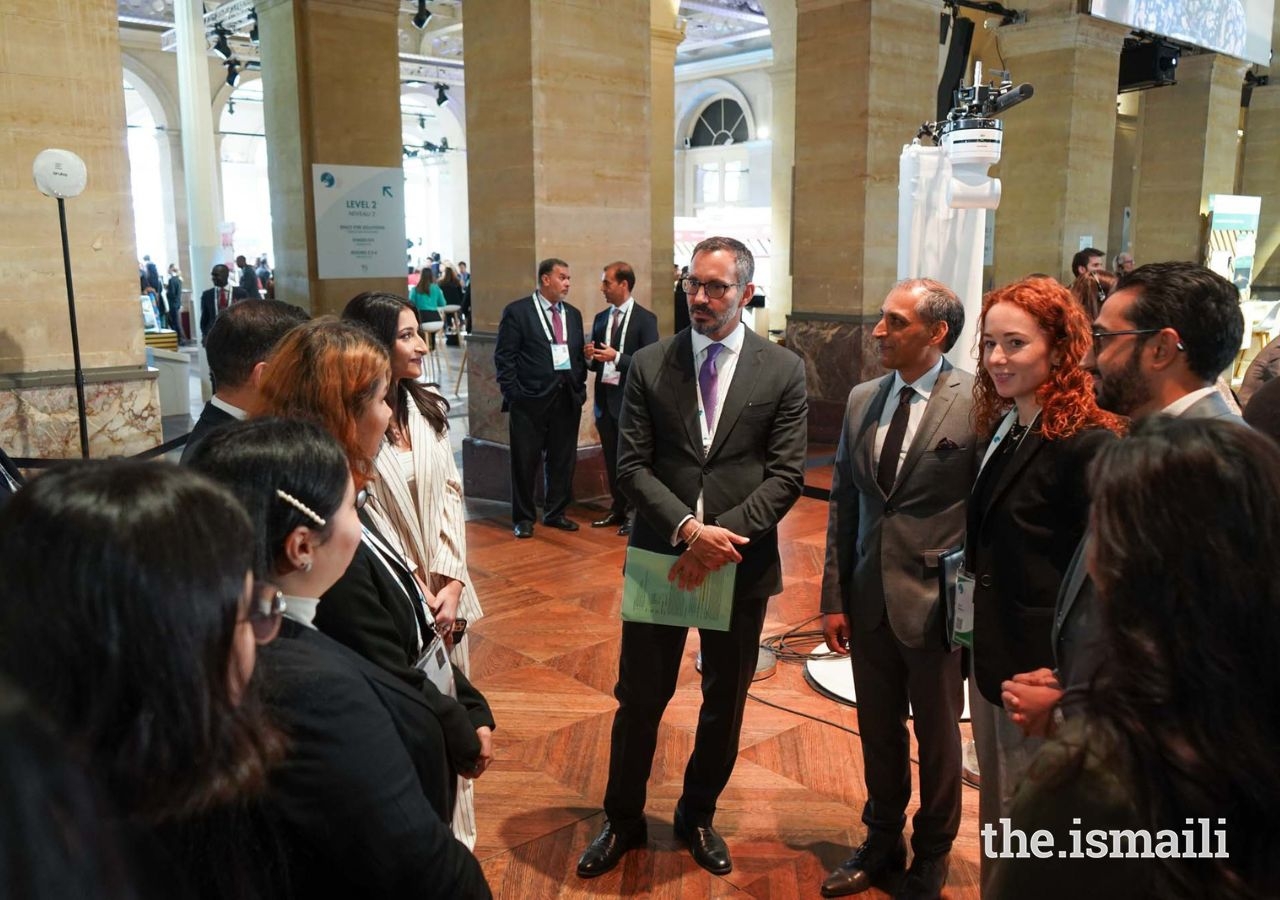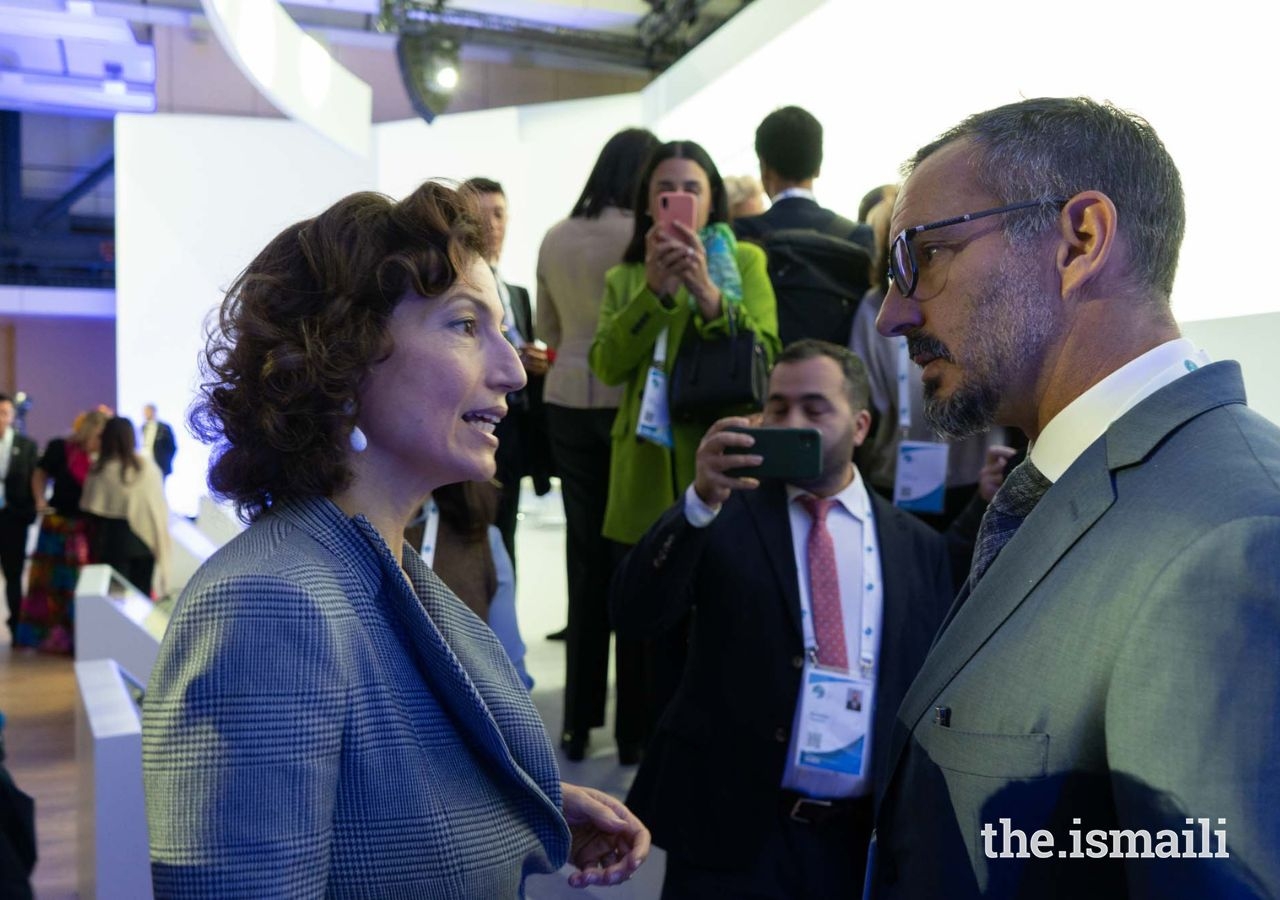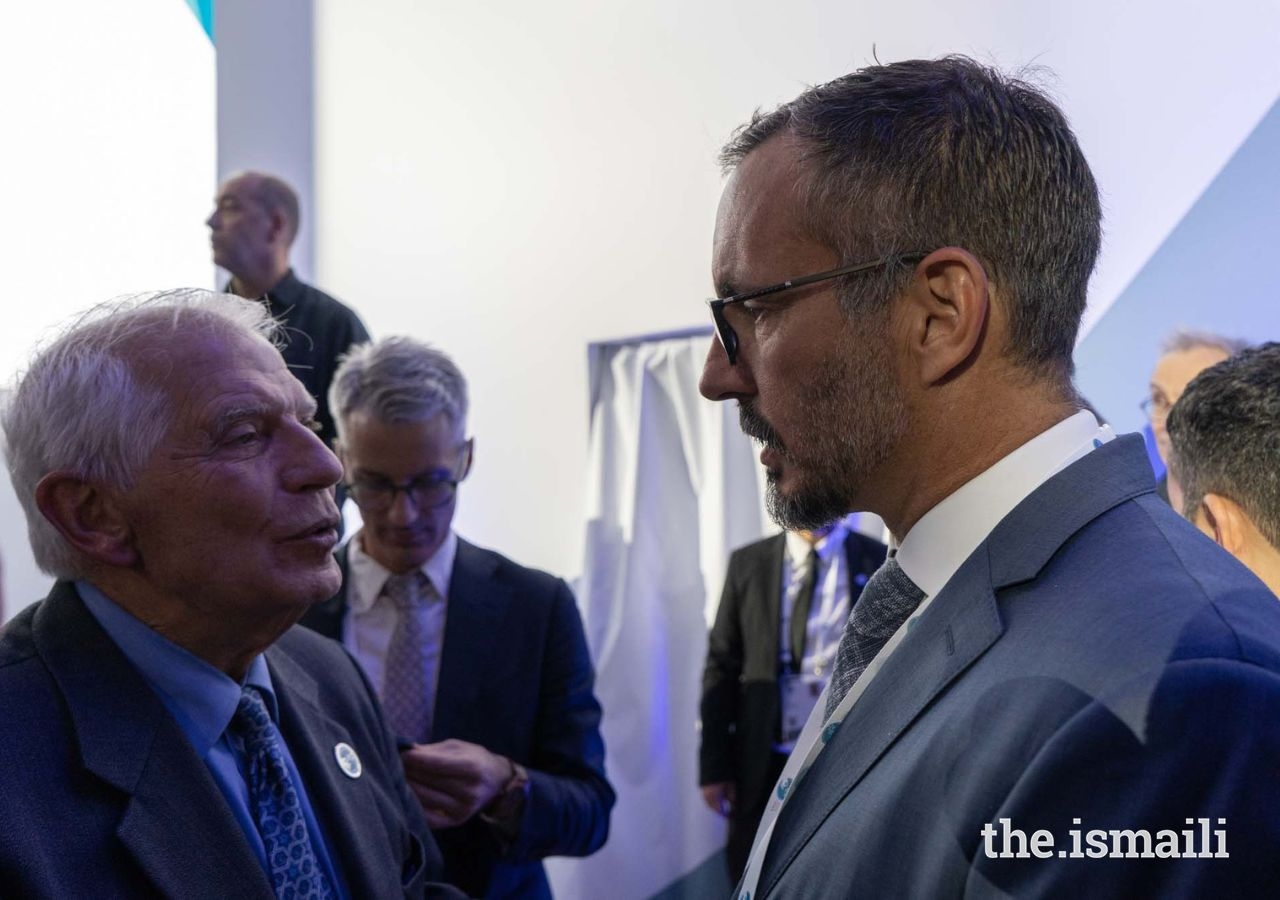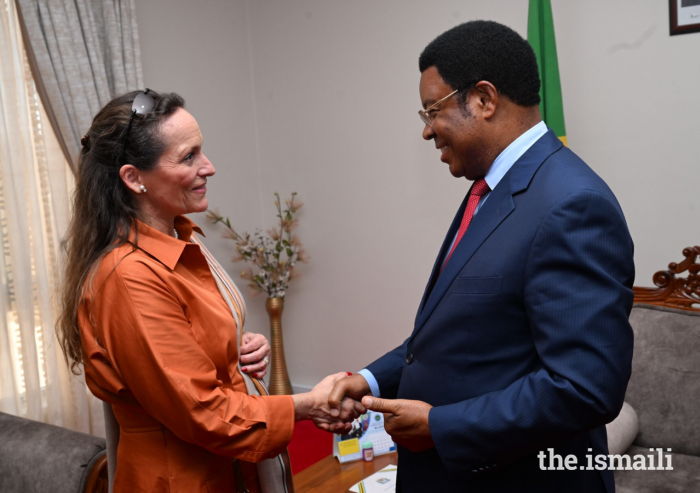The Aga Khan Development Network (AKDN) is a Founding Member of the Forum, along with the French government and various civil society organisations. AKDN was represented at the Forum by Prince Amyn, who is a member of the Forum’s Executive Committee, as well as Prince Rahim, who attended for the first time. A number of Ismaili volunteers were also present to help with the smooth running of the event.
Queen Rania of Jordan commenced proceedings on 11 November, with her powerful choice of words urging nations of the world to not only ‘address’ the so-called multicrisis, but rather to unite towards taking action for a better future.
“It’s too late for wish lists. We need binding to-do lists to save both our credibility and our planet,” said Queen Rania.
The to-do list of this year’s Forum centered around six main themes: managing the fallout of the multicrisis on populations, cooperating through conflicts, rethinking globalization in a polarized world, catalyzing climate and environmental solutions, ensuring a safer and ethical digital world, and fostering more inclusive and just societies.
To create real action and change, the Forum showcased 60 innovative projects that address global challenges. The Climate Pathways project by MIT’s Sloan Sustainability Initiative was one of those projects. Prince Rahim spent time at their booth and learnt about their climate solutions simulator, which is a first-of-its-kind tool that can show the impacts of global climate policy decisions on societal factors.
Ten projects were selected by a jury to receive a year of support from the Forum’s Scale Up programme, which helps the projects to raise funds, increase awareness, and implement plans. This included a project that uses millions of data points to automatically assess the non-financial impact of businesses, directing finance to companies that make both a profit and a difference. Another project provides a platform to strengthen the resilience of youth in Central Asia to online disinformation and hate speech.
In our increasingly uncertain world, gatherings such as the Paris Peace Forum are important as they bring decision makers together to deliberate on the big issues of our time. These issues impact us all, from surging inflation, food insecurity, and extreme weather, to deepening inequality, new health crises, and political disruption. A collaborative and united response to these is required for societies to thrive, today and in the future.
Many volunteers from the Jamat took part in this year’s forum, including Farahte Rizai who served as a roundtable coordinator and said of the experience, “It was an opportunity to meet and discuss with various actors on subjects relating to global governance in order to work for peace in the world.”
Binazir Mizrobova, an official delegation coordinator, welcomed the opportunity to not only volunteer but also to gain knowledge and experience from the event.
“Having the privilege of assisting the Paris Peace Forum not only permitted me to give back to the community but also to encounter inspirational figures such as author Dubai Abulhoul,” Binazir said. “During the panel on universalism in the face of war, which she shared with President Macron, Dubai reiterated the importance of multilateralism and the futility of binary thinking — those are the values that have been promoted within our community for decades.”

